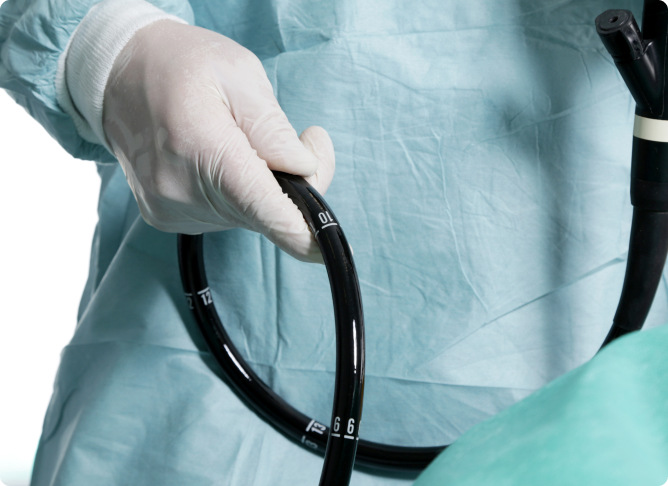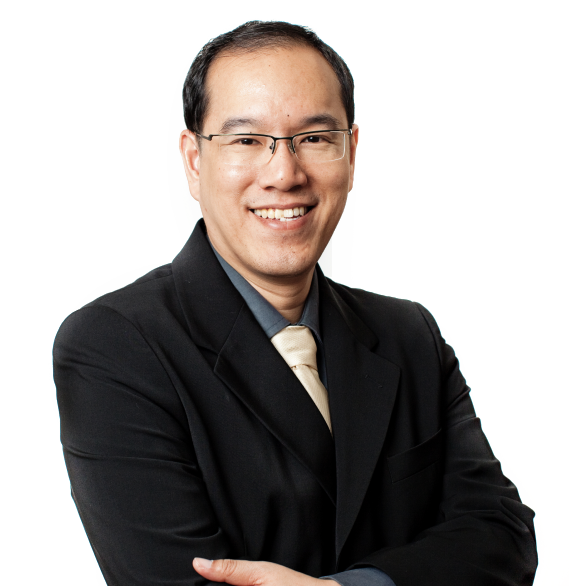What you need to know about Colonoscopy?
About Colonoscopy
Colonoscopy Procedure
Colorectal Cancer Screening
Cancer is the #1 cause of death in Singapore, with colorectal cancer topping the list as the most common cancer affecting men, and the second most common cancer in women. In fact, it has been estimated that every day, five people in Singapore are diagnosed, two of whom die of it.
Colorectal cancer does not cause symptoms until its advanced stages when it is harder to treat, making early detection all the more crucial. For this very reason, a colonoscopy in Singapore should be done in a timely fashion in accordance to your age group and risk level.

What is a Colonoscopy?
A colonoscopy is a screening test that allows the doctor to look inside the large intestine to check for symptoms of colon cancer and other conditions affecting the organ. These include inflammatory bowel diseases that cause abdominal pain, rectal bleeding, unexplained weight loss and changes in bowel movement.
As a diagnostic tool, it can extract tissue samples from the colon for biopsies. It is also typically used as a minimally invasive manner to remove polyps, which may turn into cancer.
Furthermore, colonoscopies are done alongside other screening exams to ensure that the diagnosis is accurate. Those who have a family or medical history of colorectal conditions are advised to undergo the procedure earlier and more frequently.

How Colonoscopies Are Done
To get a clear view of the entire length of the colon, it is essential that it is purged of stools which may obstruct the doctor’s view. As such, the doctor will prescribe strong laxatives to be taken a day before the colonoscopy, to ensure that the colon is entirely cleared.
During the procedure, the patient will be asked to lie on his side with his knees bent and folded up to the chest. A colonoscope, a flexible tube with a light and camera, is then gently inserted through the anus and into the colon. The camera transmits images onto a viewing monitor, allowing the doctor to see the inside of the colon in real time.
The colonoscope is also equipped with a tube used to pump air into the colon. Though it can cause a mildly uncomfortable bloated feeling, inflating the colon gives the doctor a clearer view to check for any abnormalities.
The colonoscope is also equipped with a snare to remove abnormal tissues for biopsies and polyp removal.
The colonoscopy takes about 20 to 40 minutes and can be performed under general anesthesia. Those who choose to do the procedure without sedation may experience a bloated sensation or an urge to pass motion when the colonoscope moves or pumps air.
When & How Frequently Should A Colonoscopy Be Done?
How often a person should have a colonoscopy depends on his or her risk of developing colon cancer, and the results of previous colonoscopies, if applicable.
The recommended age to undergo a colonoscopy and other colorectal screening tests is 50 years old. Those with a low or average risk of getting colon cancer are encouraged to get a colonoscopy every 10 years after they reach the age of 50.
People who are at high risk of colorectal cancer, which include those who have a family history or previous cases of colorectal cancer or polyps, should undergo screening every 5 years once they turn 50.
If there is a history of colorectal cancer in the family, relatives are advised to get a colonoscopy around 10 years earlier than the age when the family member developed the cancer. For example, if a father was diagnosed with colon cancer at 55 years old, his children and siblings should undergo a colonoscopy at 45 years old.
Additionally, one’s lifestyle plays a role in increasing his or her risk of contracting cancer. These factors include a sedentary lifestyle with little to no physical activity, high-fat and low-fiber diet, excessive smoking and alcohol intake, and obesity.
As a general guide:Low-risk patients: Every 10 years after the age of 50
High-risk patients: Every 5 years (for those with a family history of colorectal cancer, etc.)
Possible Complications
Understanding the Results of a Colonoscopy
Common Misconceptions about a Colonoscopy
Are There Alternatives to a Colonoscopy?
His interest lies in the field of advanced therapeutic endoscopy and colonoscopy, and laparoscopic colorectal surgery. Dr. Ho is also one of only few surgeons certified to perform robot-assisted surgery. Contact us today at 6737 2778 for a detailed consultation.
For more information, call our colon surgeon at (+65) 6737 2778

Leave a message and our team will get back to you
Our care team will be here for you before, during, and after your procedure.We strive to provide the highest quality of surgical care to our patients in a caring, compassionate, and respectful manner to ensure your healthy recovery.
3 Mount Elizabeth, Mount Elizabeth Medical Centre#04-08, Singapore 228510
| Tel | : | (+65) 6737 2778 |
| : | hokoksuncolorectal@gmail.com |
Operating Hours:
| Mon - Fri | : | 9am - 1pm, 2pm - 5pm |
| Sat | : | 9am - 1pm |
| Closed | : | Sunday, Public Holiday |
